News
-
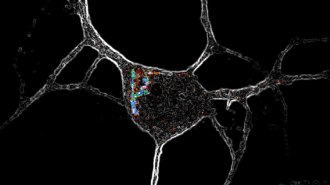 Health & Medicine
Health & MedicinePsychedelics may improve mental health by getting inside nerve cells
Psychedelics can get inside neurons, causing them to grow. This might underlie the drugs’ potential in combatting mental health disorders.
-
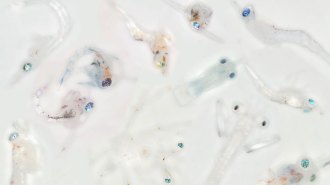 Animals
AnimalsGlassy eyes may help young crustaceans hide from predators in plain sight
Nanospheres in the eye reflect light that matches the color of the surrounding water, possibly making the animals invisible to nearby predators.
-
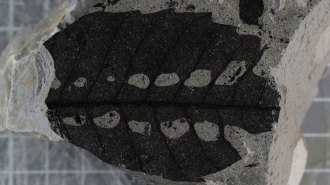 Paleontology
PaleontologyInsect bites in plant fossils reveal leaves could fold shut millions of years ago
The 252-million-year-old fossil leaves have symmetrical holes, which suggest an insect bit through the leaves when they were folded.
-
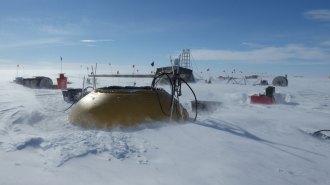 Climate
ClimateRapid melting is eroding vulnerable cracks in Thwaites Glacier’s underbelly
Thwaites is melting slower than thought, but the worst of it is concentrated in underbelly cracks, threatening the Antarctica glacier’s stability.
By Douglas Fox -
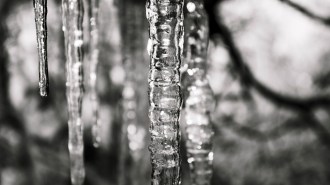 Physics
PhysicsHere’s why icicles made from pure water don’t form ripples
A new study explains why icicles made from pure water have irregular shapes rather than the ripples typical of the salty icicles found in nature.
-
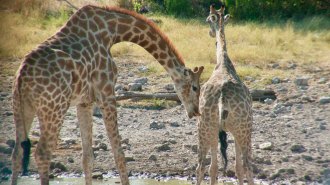 Animals
AnimalsWhy male giraffes drink potential mates’ pee
In giraffes, an organ that detects pheromones has a stronger connection to the mouth than the nose. That’s different from many other mammals.
-
 Astronomy
AstronomyThe James Webb telescope spotted the earliest known ‘quenched’ galaxy
A galaxy dubbed GS-9209 ceased forming stars more than 12.5 billion years ago after a 200-million-year-long sprint.
-
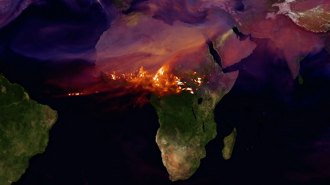 Climate
ClimateClimate ‘teleconnections’ may link droughts and fires across continents
Far-reaching climate patterns like the El Niño-Southern Oscillation may synchronize droughts and regulate scorching of much of Earth’s burned area.
By Nikk Ogasa -
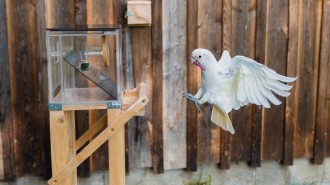 Animals
AnimalsCockatoos can tell when they need more than one tool to swipe a snack
Cockatoos know when it will take a stick and a straw to nab a nut in a puzzle box. The birds join chimps as the only known nonhumans to use a tool kit.
-
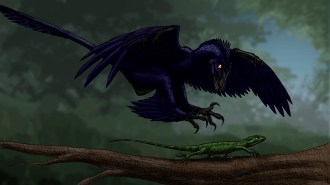 Paleontology
PaleontologyThis dinosaur might have used its feet to snag prey in midair like modern hawks
Fossilized toe pads suggest a hawklike hunting style in Microraptor, a dinosaur that some scientists think could hunt while flying.
By Derek Smith -
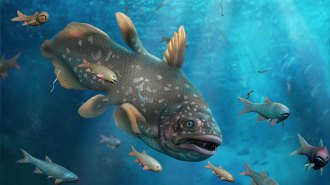 Paleontology
PaleontologyIn the wake of history’s deadliest mass extinction, ocean life may have flourished
Ocean life may have recovered in just a million years after the Permian-Triassic mass extinction, fossils from South China suggest.
By Nikk Ogasa -
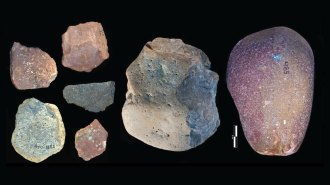 Anthropology
AnthropologyHominids used stone tool kits to butcher animals earlier than once thought
Finds in Kenya push Oldowan tool use back to around 2.9 million years ago, roughly 300,000 years earlier than previous evidence.
By Bruce Bower